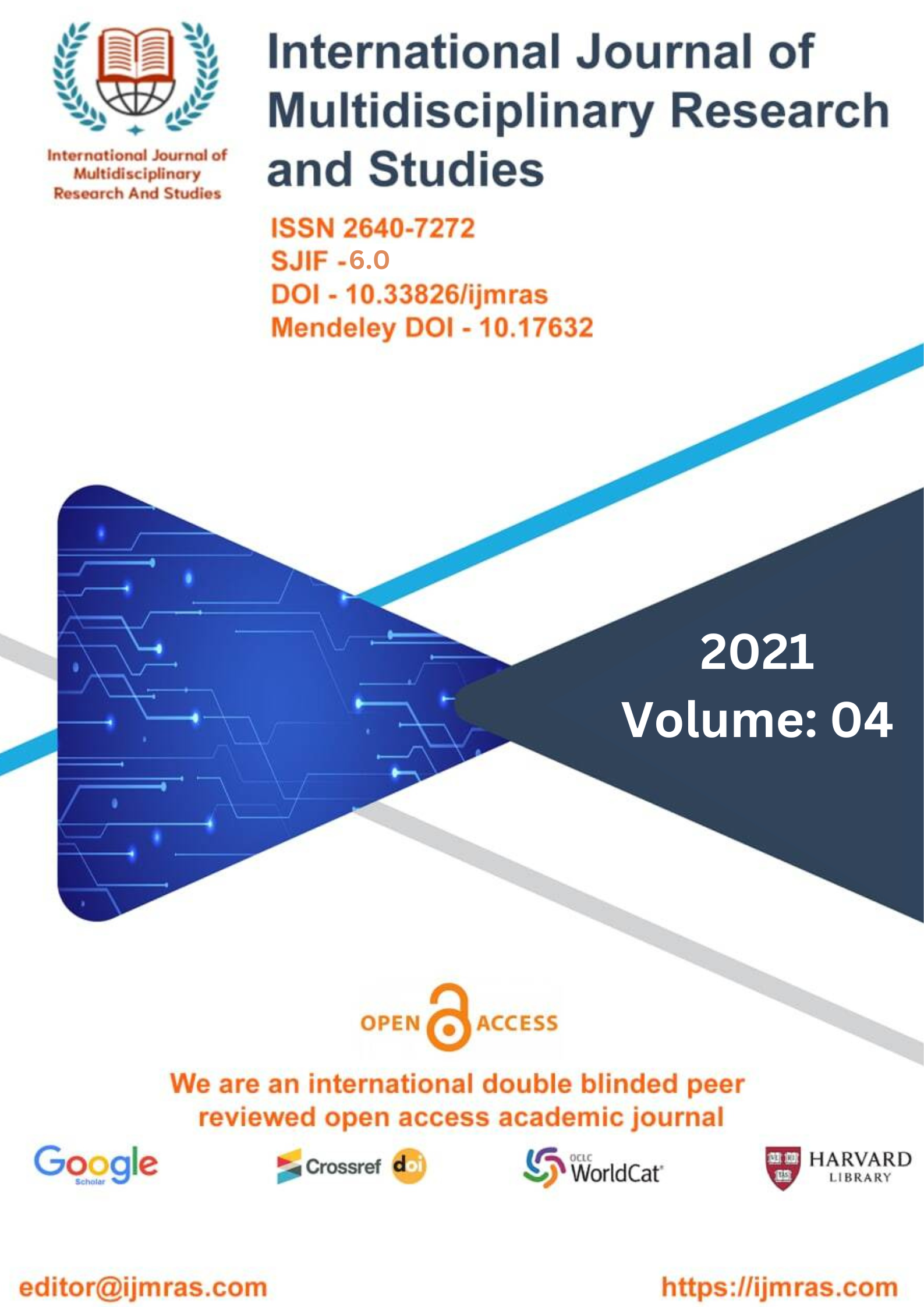CULTURE AND WOMEN SARA ABOOBAKER AND B.T NOVELS

Abstract
Some less powerful parties could be forced to accept a representation if it is imposed by a more strong group. In this respect, it is applicable to the research of underrepresented groups, such as women and underprivileged populations. It is not uncommon for representations to give rise to a shared sense of identity, which, once formed, continues to exist. However, the process that led to its creation will not go away or become less noticeable. For instance, some of the marginalized Indian communities and tribes were branded as criminal tribes by the British, and they suffered the stigma even after they were de-notified by the Indian government after independence. Furthermore, women are portrayed as the inferior gender in all of the world's cultures. Stuart Hall is a proponent of establishing a connection between literary theory's comprehension of the construction of meaning and textual interpretation and social theory's delineation of competing forces present in the social field. Any understanding of a piece of literature needs to take into account not just the hegemonic work that the text accomplishes, but also the social factors that contribute to the production of the text.
Keywords
Culture, Representation, Identity, ThemeHow to Cite
References
Nadira-Breaking Ties. Trans. Vanamala Vishwanatha. Mangalore: Chandragiri Prakashana, 2013. Print. ---. Sahana. 3rd ed. Mangalore: Chandragiri Prakashana, 2002. Print. ---.
New Delhi: Penguin, 2004. Print. ---. Small Remedies. New Delhi: Penguin, 2001. Print. ---. Strangers to Ourselves. Uttar Pradesh:
Harper Collins, 2015. Print. ---. That Long Silence. New Delhi: Penguin- Random House, 1989. Print. ---. The Binding Vine. New Delhi:
Ahmed, Leila. Women and Gender in Islam: Historical Roots of a Modern Debate. Yale UP, 1992. Print. Alf Gunvald, Nilsen and Roy, Srila.
Altekar, A.S. The Position of Women in Hindu Civilization:From Prehistoric Times to the Present Day. 12th Print. New Delhi: Motilal Banarasidass, 2016. Print.
Bargur, Ramachandrappa. Sahitya Matthu Rajakarna. Bengaluru: Kannada Pushtak Pradhikara, 1998. Print.
Dabbe, Vijaya. ed. Lekh- Lokh. Bengaluru: Karnataka Lekhakiyara Sangha, 1998. Print. 303 Devy, Ganesh. “After Amnesia.” The G.N.Devy Reader. New Delhi: Orient Black Swan, 2009. Print.
Durkhim, Emile. The Elementary Forms of Religious Life. New York: Free Press,1995. Print. Eagleton, Terry. Literary Theory: An Introduction. London: Basil-Blackwell, Oxford University Press, 1983. Print. Edger, Andrew and Sedgwick, Peter. Cultural Theory: The Key Thinkers. London: Routledge, 2004. Reprint. Engineer, AsgharAli. The Quran, Women and Modern Society. India: New Dawn Press,1999. Print.
Gilbert, Sandra and Gubar, Susan. The Madwoman in the Attic: The Woman Writer and the Nineteenth Century Literary Imagination. New Haven and London: Yale University Press, 1979. Print.
Greer, Germaine. The Female Eunuch. New York: Mc Graw Hill, 1970. Print.
Halbar, B.G. Lamani Economy and Society in Change: Socio-cultural Aspects of Economic Change Among the Lambani of North Karnataka. Delhi: Mittal Publications,1986.Print.
Hiremath, Mallikarjun. Havana. Gadag:Sangeeta Pusthak, 2001. Print.
Jaffer, S.M. Some Cultural Aspects of Muslim Rule in India. Oriental Series. Peshawar: Muhammad Sadiq Khan, 1927. Print.
Jain, Jasbir. Writing Women across Cultures. New Delhi: Rawat, 2002. Print. Jawad, Haifaa A. “The Legal Status of Women in Islam.” The Rights of Women in Islam-An Authentic Approach. London: Palgrave-MacMillan, 1998. Print.
Joshi, Harris. ed. Tonnie. Community and Society : Cambridge texts in the History of Political Thought. University of Oxford: Cambridge University Press, 2001. Print. 305
Khan, Mumtaz Ali. Islam Dharmadalli Mahileyara Stanamana. Bangalore: Sapna Book House, 2012. Print.
License
Copyright (c) 2021 Sunil Kumar Pandey

This work is licensed under a Creative Commons Attribution 4.0 International License.
Individual articles are published Open Access under the Creative Commons Licence: CC-BY 4.0.




